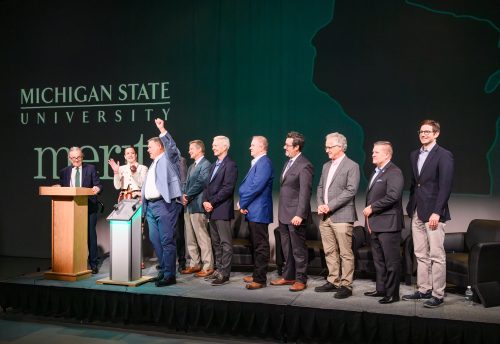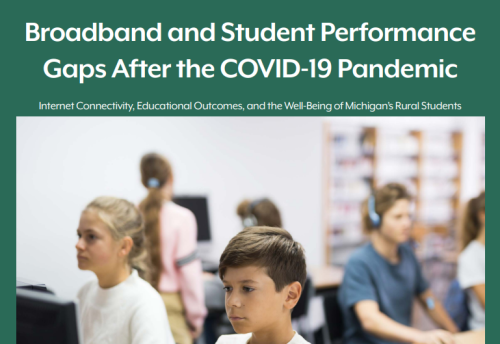As the Euro crisis enters a new high-risk phase pregnant with opportunity for either long-awaited progress or regrettable and widespread harm, I find myself pondering the value of research focused on how traditional and online/social media are treating the crisis and their role in easing or exacerbating its risks. Such a study might include how media coverage and social media dynamics vary across countries, media types and specific media channels, and how these correlate with public opinion in different countries and key decisions, events and outcomes related to the unfolding situation.
There’s certainly a lot at stake in the crisis, including the future of the admirable but now increasingly in question “European Project.” My hope is that there’s also a lot to learn—-for communication scholars; political leaders; media outlets, platforms and journalists; as well as individual citizens impacted by and/or concerned about the crisis and its outcome…and that this learning leads to more positive outcomes for all involved.
As a non-expert in this field, I found myself wondering whether any such studies have already been done or are currently underway. And as I often do when I’m wondering about something, I asked Google. My brief and very preliminary web search discovered a handful of fairly recent studies on this general topic (see here, here, here and here), all of which seem to focus mainly on traditional media coverage. If anyone reading this knows of other studies that might be relevant here–especially ones that include both traditional and online media–please share your thoughts on them (along with a link, if available).
Though I’ve never been involved in such a study, and am sure others have better ideas, what strikes me as a potentially effective model is for an international team of media research experts (including some that are familiar with the specific issues and players involved in the current crisis) to develop a research design that could be executed in large part by trained university students with appropriate language and research skills.
I think such a study would be both fascinating and valuable, especially if it could shed some helpful light on the complex communication dynamics and impacts related to the Euro crisis. These include language and cross-cultural barriers aggravated by longstanding resentments and negative stereotypes, all of which hinder trust, empathy and mutual understanding; the constantly evolving interactions between traditional and online/social media; and fundamental disagreements among political leaders and citizens from different countries and political parties–and among economists–regarding the value and impacts of economic theories and policies. And all of this is taking place within a multi-layered and still somewhat formative European system of economic and political governance, which most see as admirable in its unifying ambitions, but may not be sufficiently well designed and field tested to achieve them in the face of the current (or some future) crisis.
Some preliminary thoughts on some of these issues below:
Blogs and tweets
In an earlier post I discussed the role of interconnected “expert blogs” (including that of Greek Finance Minister Yanis Varoufakis) in analyzing events and issues related to the current situation, noting that I’ve personally found these very helpful in trying to understand what’s going on and what’s at stake. In that post I also pointed to a BBC report and interview with Varoufakis as an example of overly simplistic and unhelpful TV journalism (the original link that included a lead-in report Varoufakis criticized as inaccurate seems to no longer be available on the BBC website).
I’d also point to another recent post, on the Naked Capitalism blog site, that illustrates the blending of various media. In attempting to clarify what really happened behind the scenes during a recent flashpoint in Greece-Eurogroup negotiations, the post embeds a 26 minute video of a press conference by Varoufakis and a mix of tweets and emails trying to clarify what really happened behind the scenes.
Something that post also highlights is the fact that tweets can deliver textual content well beyond Twitter’s 140 character limit by embedding text as a picture. Varoufakis’ own Twitter feed also has been using this technique recently, as well as embedding videos. And the fact that his Twitter feed has been relatively active in recent days, while the last entry on his blog as of this writing was January 31, highlights Twitter’s use as a vehicle for rapid and fluid information exchange among very busy individuals in fast-changing situations involving a range of participating and interested parties.
Reliance on domestic media in a multinational confrontation
To the extent that a nation’s citizens rely on domestic media to understand what’s going on in the world, the risks are greater that they will develop one-sided and often inaccurate perceptions. This seems especially the case at high-stress moments in international affairs, and when negative cultural stereotypes exist and can be readily triggered by overtly or more subtly jingoistic media coverage catering in various degrees to domestic audiences, advertisers and politicians. Recent examples of the latter, as reported by the BBC, include:
And the occasional references to Nazis – such as a recent cartoon in a pro-Syriza newspaper depicting German Finance Minister Wolfgang Schaeuble in a Second World War German army uniform – have clearly not helped…
Popular [German] tabloid Bild has a double-page spread featuring pictures of Vladimir Putin and Alexis Tsipras with the headline: “The Russian or the Greek: who is more dangerous for us?” Underneath it says: “Europe is in the most difficult crisis it’s seen for decades — because two heads of government are aggressively demonstrating their power.”
This kind of inflammatory language and imagery is at best polarizing and at worst quite dangerous, especially at sensitive points in negotiations, such as has been the case following Syriza’s electoral victory in late January. It is ironic and not without relevance that Germany was the country economically squeezed beyond its means by other European nations after World War I, and that the resentment this engendered helped fuel Hitler’s rise to power and subsequent external aggression, fed continually by a propaganda campaign that made frighteningly skillful use of a wide range of media, including that era’s relatively new and powerful communication technologies–radio and film.
Countering the echo-chamber effect: A worthy goal and topic for research
I suspect most scholars and non-expert observers would agree that the Internet can and often does exacerbate the echo-chamber effect in media consumption. While I’m part of this group, I also believe that the Internet offers unique opportunities for citizens to extend beyond their insular media bubbles by gaining access to, digesting, interacting with and learning from a range of different perspectives and opinions.
As a very interested but non-expert observer of this phenomenon, my simplistic view is that:
- The extent to which this “extending beyond the echo-chamber” activity occurs and has constructive impact is a function of the interplay between individuals’ motivation level and their capacity to access, evaluate without prejudice, and engage with new, unexpected and perhaps uncomfortable information and opinions.
- This “extending beyond the echo chamber” dynamic is a worthy focus for academic research designed to better understand the factors that promote or inhibit it and its constructive impacts.
- Applying the insights gleaned from academic reseach and practical experience in this arena is a worthy pursuit for developers of digital tools, platforms and communities, and perhaps for productive collaborations involving both academic researchers and the digital development community.
Do language barriers aggravate misunderstanding and mistrust?
Another thing that struck me as I’ve thought about this is the importance of language barriers in multinational media coverage. Even in the Internet age, when most of us have access to a much broader range of media content than in the past, if that content is in a language we don’t understand, it’s not useful to us. And while Google can provide some quick but crude translations, my own experience suggests this is of modest value when dealing with relatively complex economic and political issues and a range of cross-cultural nuance and sensitivities.
The current multinational Euro crisis also seems to highlight the value of being able to speak to foreign audiences in a language they can easily understand and in a manner they can relate to.
One example of this (at least for this English speaking audience of one) is the joint press conference held by Varoufakis and his German counterpart Wolfgang Schauble, after they met on February 5. Whereas Schauble (who apparently does speak English) used a translator, Varoufakis spoke in English. While I don’t claim to be a good sample of the average English-speaking viewer, I found that the translator’s dry monotone presentation reinforced my preconception of Schauble as a relatively rigid and insensitive financial Eurocrat, and his perspective as both wrongheaded and difficult to follow. In contrast, Varoufakis’ mastery of the English language reinforced my impression of him as a deep thinker and honest and inspiring political leader. While this kind of reaction may be a small factor in the big media-impact picture—-and others may respond very differently to the press conference than I did—-I suspect that a combination of similarly small communication factors can be significant in a world where YouTube and other online platforms allow virtually any video to reach a global audience. Expanding one’s audience in the digital age can be only a click away. But so can losing it. And sometimes the difference between the two can be a mix of seemingly small and often ignored factors.
A related issue was raised in a recent New York Times article:
[I]nevitably in politically charged negotiations, there are differences of style and approach. Germans, in particular, have been alarmed by the confrontational attitude of the Greek delegation led by Mr. Varoufakis, who is unusually plain-spoken and telegenic. He represents a frontal challenge to the settled order of quiet, back-room negotiation that characterizes most European deal making.
As I see it, Varoufakis is not only (refreshingly or annoyingly, depending on your perspective) frank and telegenic, he also appreciates the potential value of Internet-based tools and platforms for communicating with a wider audience beyond those facing him at the negotiating table. It remains to be seen however, whether and how his social media savvy will influence the delicate “back-room negotiations” that could suddenly plunge his nation toward bankruptcy and out of the Euro currency union.
The European project, national sovereignty, democracy and economic theory
It seems pretty clear that Varoufakis and his Syriza colleagues, in addition to seeking relief for Greece’s suffering citizens, hope to shift the political and economic policy center in Europe away from the current focus on fiscal austerity to a more bottom-up growth strategy and set of priorities they see as more effective in creating widespread prosperity.
German leaders no doubt also want prosperity, though they apparently believe it is best achieved through the current austerity program, in spite of considerable evidence to the contrary–at least in the Euro’s southern region, especially Greece, Spain and Portugal. The stark and prolonged divergence between economic trends in Germany as compared to these other nations is putting serious strains on the sense of a “European” vs. a nationalistic identity, especially when this divergence is interpreted through very different perceptual lenses. While these lenses are framed intellectually by competing economic theories, they are colored by different cultural values and sometimes longstanding and negatively-charged stereotypes. And, as noted above, the latter are sometimes reinforced in unhelpful ways by echo-chamber effects in both traditional and social media.
With the sense of a united “European” identity strained by austerity and animosity, the political landscape is breeding some unusual– though only partial and I suspect temporary–strange bedfellows between elements among Europe’s political left and right wings. Their shared grievance seems to be that economic governance within the Eurogroup is increasingly viewed as anti-democratic, in that it gives too much power to unelected officials even when their decisions run counter to those of a country’s democratically elected officials (as is currently the case following Syriza’s electoral victory in Greece). While some observers pointed to this as a problem very early on in the Euro’s history, the sense that the system is not working effectively has grown more widespread and intense since the 2008 global financial crisis. The main reason for this is that, over time, the Eurogroup’s austerity program has become increasingly viewed as a cause of unnecessary and widespread suffering, with no turnaround in sight despite repeated official forecasts of impending and increasingly robust recovery.
This short video highlights one element of this “strange bedfellow” political dynamic. It features Nigel Farage, head of the UK’s right-wing “democratic libertarian” (and Eurosceptic) Independence Party, speaking in early February before the European Parliament. In his comments Farage is not only harshly critical of European officials, but also expresses enthusiastic support for Varoufakis, even as he describes the Greek Finance Minister as a “Marxist academic,” a label not usually accompanied by praise and encouragement from right-wing libertarians.
Though this post has only scratched the surface of the complex communication issues at play (and the stakes involved) in the latest phase of the Greece-Euro crisis, I hope it has spurred some interest in viewing the crisis as a valuable learning experience, not only for those directly responsible for addressing it, but also for scholars, whose role in society is to help us understand how and why such crises occur, and how best to avoid—or at least better manage—them in the future.



